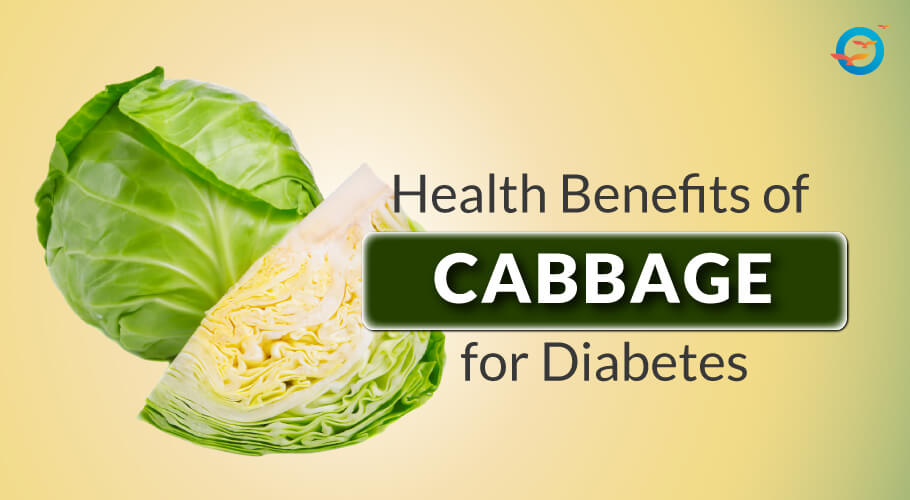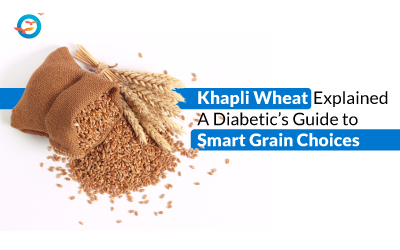Is cabbage good for diabetes

Cabbage has been enjoyed across the world for centuries. It is believed that they grew wild until they were domesticated in Europe over 3000 years ago. The cabbage’s thick leaves retain water, which probably helped them survive in cold climes with less water.
In the East, cabbages have been a staple even longer, having been cultivated since 4000 BC in North China. The Greeks loved their cabbage, and the Romans considered them a bit of a luxury item. Ancient physicians also knew about the cabbage’s medical properties. Roman healers used it to treat gout, and headaches. Cabbages were also used on long sea voyages, to prevent scurvy, which is caused by lack of Vitamin C, of which cabbage has plenty.
Cabbage were brought to India by Portuguese traders, and they have flourished here ever since, adding crunch and flavor to a variety of dishes, from salads to pickles to cooked vegetable, broths, and, the ever-popular coleslaw.
The cabbage is so versatile and tasty as a cooking ingredient, that its nutrient content is often overlooked. But it has some very powerful nutrients that make it an indispensable food for everyone—especially diabetics.
Cabbage Nutrient Profile
Cabbages contain a wealth of healthy nutrients including:
- Vitamin C
- Vitamin K
- Vitamin B6
- folate
- manganese
- magnesium
- potassium
- calcium.
Although it is low in calories, it is loaded with fibre—both insoluble and soluble—and micronutrients, including antioxidant polyphenols and sulphur compounds.
Health Benefits of Cabbage
1. Reduces Inflammation
Cabbages belong to the cruciferous family of vegetables, which are known to reduce inflammation. Cabbages are rich in inflammation-lowering antioxidants, such as sulforaphane, and kaempferol,.
2. Fights Free Radicals
Cabbages are high in Vitamin C, which is a power anti-oxidant, and is also touted for its cancer-fighting properties.
Vitamin C’s anti-oxidation properties provide powerful protection to the body from free-radical damage, which have been associated with several chronic diseases—and cancer too.
While both Green and Red Cabbage varieties are good sources of Vitamin C, red cabbages have higher levels, providing approximately 85% of your Recommended Daily Intake (RDI), per cup of about 90 gm.
3. Improves Digestion
Cabbages are rich in both soluble- and insoluble-fibre, and both are vital for gut health. Insoluble fibre provides roughage to waste in the intestines, and promotes regular bowel movement.
Soluble fibre is the chief source of nutrition for gut healthy bacteria, which produce essential nutrients like Vitamin B12 and K1 & K2; about 40% of the fiber in cabbages is soluble, making the cabbage a an excellent natural gut-healthy food.
4. Helps keep Heart Healthy
Cabbages have a lot of anthocyanin. These are flavonoids and plant pigments. Consuming food high in this pigment reduces heart disease risks.
Another benefit of this flavonoid is its protective effect against heart disease. Cabbages—especially Red Cabbages, contain more than 30 different anthocyanin, making them a very heart healthy food.
5. Helps Lower BP
Excess salt is commonly associated with high blood pressure, which is why doctors recommend reducing salt intake. However, there is evidence to show that increasing potassium in your diet is as important in regulating BP. Potassium is an important mineral and electrolyte that counteracts the action of sodium. Including potassium-rich cabbage in your diet is a tasty way to normalise BP.
6. Lowers Cholesterol
Cabbage contains two nutrients that make it a potent cholesterol fighter: Soluble fiber and phytosterols.
Soluble fibre binds to cholesterol in the digestive tract and keeps it from being absorbed into the blood, effectively reducing the percentage of LDL in the blood.
Phytpsterols are plant compounds that perform the same action, i.e. reduce LDL cholesterol by blocking absorption in the gut.
7. Easy to Consume
Cabbage, as mentioned earlier is a delicious vegetable. It can be had raw, cooked, or included in salads, soups, stews, and more.
It has some added attractions, in that, it is very economical and can be found all year round, and all across the world
To know more about top 10 vegetables for diabetes, visit our Article.
FAQs
Is cabbage good for people with diabetes?
Yes, cabbage is a low-calorie, high-fiber vegetable that helps to regulate your blood sugar levels, due to this cabbage make good option for diabetes.
How does cabbage benefit blood sugar control?
Cabbage has a low glycemic index and is rich in fiber, which slows down digestion and helps preventing sudden spikes in blood sugar.
Can eating cabbage regularly help manage diabetes?
Yes, including cabbage in your diet regularly can support better blood sugar control due to its fiber content and low carbohydrate levels.
What are the best ways to eat cabbage for diabetes?
You can enjoy cabbage in salads, soups, stir-fries, or steamed to retain its nutrients and keep it healthy for managing diabetes.
Is cabbage low in carbohydrates?
Yes, cabbage is low in carbohydrates, which makes it suitable for diabetics and helps with blood sugar management.

